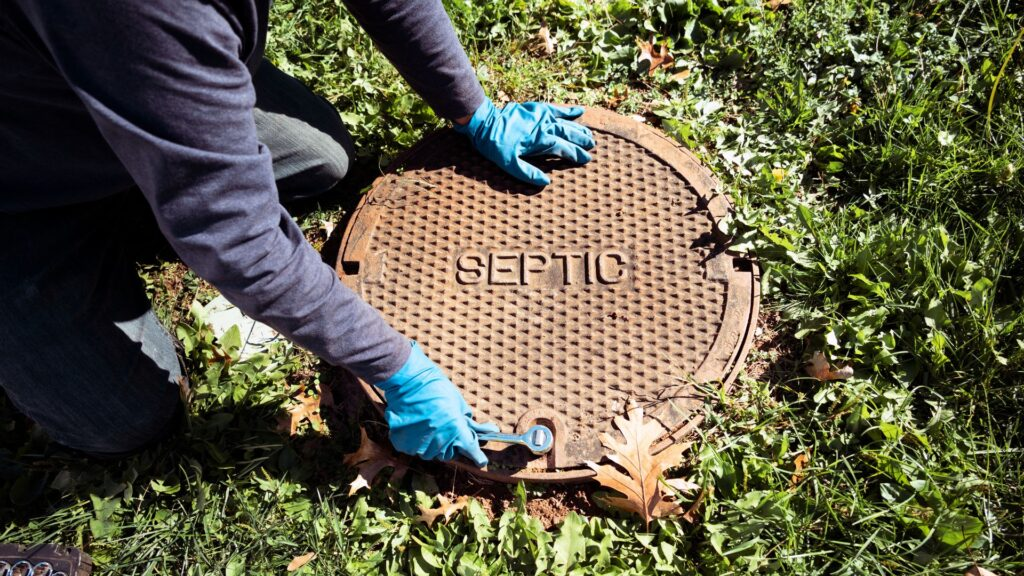A septic system is an essential part of many homes, especially in areas where municipal sewage systems are not available. It helps manage and treat household wastewater safely. Like any system, it requires care and attention to function efficiently. Septic system maintenance is the key to preventing problems, extending the life of your system, and avoiding costly repairs.
Understanding the Importance of Septic System Maintenance
Septic systems work by collecting wastewater in a tank where solids settle, and liquids flow into a drain field for natural filtration. Over time, solids and scum can build up in the tank, leading to blockages and other issues. Regular septic system maintenance ensures that the tank is cleaned, the drain field remains functional, and any potential problems are identified early. Without proper maintenance, small issues can quickly become major and expensive repairs.
Regular Inspection and Pumping
One of the most important parts of septic system maintenance is regular inspection and pumping. A professional should inspect the system every three years and pump the tank every three to five years, depending on usage and tank size. Inspections help detect leaks, cracks, or other damage that could harm the system. Pumping removes accumulated solids before they overflow into the drain field, which can cause clogs and system failure. Regular pumping and inspection keep the system working efficiently and prevent environmental hazards.
Caring for the Drain Field
The drain field is a vital component of a septic system. It allows treated wastewater to be absorbed into the soil safely. Protecting this area is essential during septic system maintenance. Avoid planting trees or shrubs with deep roots near the drain field, as roots can damage pipes. Do not drive or park heavy vehicles over this area, as it can compact the soil and reduce its ability to absorb water. Proper care of the drain field ensures the system functions correctly for many years.
Being Mindful of What Goes Into the System
Every homeowner plays a role in septic system maintenance by controlling what enters the system. Avoid flushing non-biodegradable items such as wipes, sanitary products, or chemicals that can harm bacteria in the tank. Limit the use of harsh cleaning products and excessive amounts of bleach. Kitchen grease, coffee grounds, and large food particles should also be disposed of in the trash rather than the system. Being mindful of what goes down the drains prevents clogs and helps maintain a healthy system.
Preventing Water Overload
Excessive water use can overwhelm a septic system, causing backups and damage. Septic system maintenance includes monitoring household water consumption to prevent overloading the tank and drain field. Fixing leaks, spreading out laundry loads, and installing water-saving fixtures are simple ways to reduce strain. Maintaining proper water balance ensures that the system treats wastewater effectively and avoids costly repairs.
Professional Maintenance Services
While homeowners can take steps to care for their septic systems, professional maintenance is essential. Licensed septic professionals have the tools and knowledge to inspect, pump, and repair systems correctly. They can identify potential issues before they escalate and provide guidance on best practices for system care. Investing in regular professional maintenance not only protects your property but also ensures compliance with local regulations and environmental standards.
Long-Term Benefits of Septic System Maintenance
Regular septic system maintenance offers long-term benefits for homeowners. It helps avoid unexpected failures, protects property value, and reduces environmental risks such as contaminated soil or groundwater. A well-maintained system also extends the lifespan of the tank and drain field, saving money on replacements. By staying proactive, homeowners can enjoy peace of mind knowing their septic system is running smoothly and efficiently.
Conclusion
In conclusion, septic system maintenance is not just a task—it is an essential part of homeownership. Through regular inspections, careful use, and professional care, you can ensure your septic system operates effectively for years. Taking the time to maintain your system today prevents costly problems tomorrow and keeps your home safe, comfortable, and environmentally responsible.

